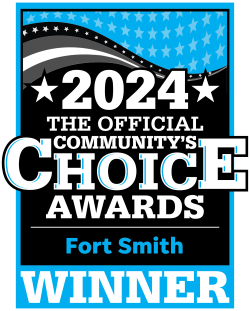
Do you feel tired even after a full night’s sleep or do you struggle with snoring at night?
If so, you might have sleep apnea, but don’t worry – you are not alone! Nearly one billion people worldwide suffer from sleep apnea.
Sleep apnea is a sleep disorder that occurs when a person’s breathing is interrupted while they are sleeping. Those whose sleep apnea goes untreated stop breathing repeatedly during their sleep and it can happen hundreds of times a night! This could result in the brain and the rest of the body not getting enough oxygen.
The main types of sleep apnea are:
-Obstructive sleep apnea (OSA): This is the more common of the two and it is caused by a blockage of the airway when the tissue located in the back of the throat collapses during sleep.
-Central sleep apnea: In contrast to OSA, in central sleep apnea the airway is not blocked, but the brain fails to instruct the muscles to breath because of instability in the respiratory control center.
-Complex sleep apnea syndrome: This occurs when someone has both obstructive sleep apnea and central sleep apnea.
Common symptoms of sleep apnea are:
-Frequent, loud snoring
-Excessive daytime sleepiness
-Chronic exhaustion even after a full night’s sleep
-Gasping, chocking, or snoring during sleep
-Morning headaches
-Gastro Esophageal Reflux Disease (GERD)
-Insomnia
-High blood pressure
-Poor memory, moodiness, or difficulty concentrating
-Waking up with a dry mouth or sore throat
There are also some factors that can increase your risk of sleep apnea, these include:
-Obesity – fat deposits around your upper airway can obstruct your breathing
-Neck circumference – people with thicker necks might have narrower airways
-A narrowed airway – tonsils or adenoids can enlarge and block the airway
-Being male – men are 2-3 times more likely to have sleep apnea than are women
-Being older – sleep apnea occurs significantly more in adults who are older
-Family history – having family members with sleep apnea might increase your risk
-Use of alcohol or sedatives – these substances relax the muscles in your throat which can worsen sleep apnea
-Smoking – smokers are three times more likely to have sleep apnea than are people who do not smoke because it can increase the amount of inflammation and fluid retention in the airway
-Nasal congestion – if you have difficulty breathing through your nose you are more likely to develop sleep apnea
Unfortunately, sleep apnea can affect anyone at any age and if left untreated sleep apnea may be responsible for poor performance in everyday activities.
Some more severe effects of untreated sleep apnea are:
-Stroke
-Heart failure, irregular heartbeats, and heart attacks
-Diabetes
-Depression
-Worsening of ADHD
-Obesity
-Sudden Death
-Dementia
The good news is sleep apnea is one of the easiest sleep disorders to treat and some of the best reasons you should get your sleep apnea treated now are:
-You will finally feel awake during the day. For many patients with sleep apnea, the brain wakes up several times an hour and with the brain being distracted it is not spending the time in the deeper stages of sleep that is needed to repair the body, store your memories and improve cognitive functions.
-You’ll sleep better at night. Every time your brain wakes up from sleep apnea, you are diminishing the quality of sleep you get and it can take longer to reenter the stages of sleep you are missing out on.
-Consider your long term health. Studies have linked a multitude of illnesses and medical problems directly with untreated sleep apnea.
-Avoid morning headaches. When you stop breathing, the carbon dioxide levels in your blood go up and the oxygen levels in your blood go down, causing a vascular headache.
-Perform better at work or school. Your sleep troubles spill over into your daily life and sleep deprivation causes troubles with concentration, lapses in attention, and even memory problems.
-Reduce your chances of accidents. Similar to how a lack of sleep can be troublesome at work or school, sleep deprivation can cause actual disasters. According to the National Highway Traffic Safety Administration, drowsy driving is estimated to be responsible for 2.5% of fatal crashes.
So, how can River Valley Smile Center help you overcome sleep apnea?
River Valley Smile Center is partnering with SleepMed to provide their patients with medicine that will effectively treat sleep apnea. SleepMed is the nation’s premier provider of best in class integrated sleep medicine that reaches the optimal for each patient. Our goal at River Valley Smile Center is to make sure each person feels certain that they are receiving g the best care that is available today. That is why we are offering sleep meds to be confident that we are helping you improve your overall health.
Be sure and check out this page as well: http://www.rivervalleysmiles.com/services-offered/sleep-apnea/

